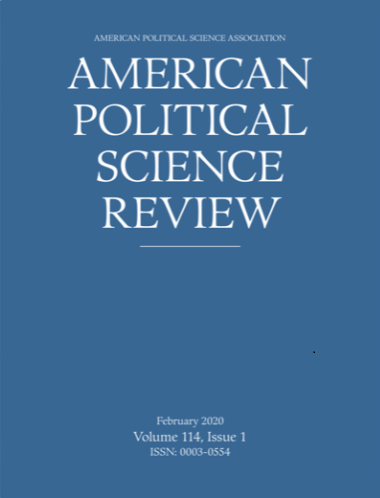政客们不知道的事可能会伤害你:信息对政治家支出决策的影响
IF 5.9
1区 社会学
Q1 POLITICAL SCIENCE
引用次数: 0
摘要
信息灵通的政治家会做出更有效的支出决策吗?在对马拉维 70% 的民选政治家($ N=460 $)进行的实验中,我们测试了信息对公共开支的影响。具体来说,我们在官员就支出分配做出实际决策之前,随机提供了有关学校需求、外国援助和投票模式的信息。我们发现,这些信息干预措施减少了支出中的不平等现象:治疗组的政治家们更有可能在被捐助者忽视的学校和需求更大的学校支出。在一些偏远和人口较少的社区,信息干预的效果最为显著。这些结果表明,信息差距可以部分解释支出分配中的不平等现象,并意味着改善政治家对社区需求信息的获取可以带来社会福利方面的好处。本文章由计算机程序翻译,如有差异,请以英文原文为准。
What Politicians Do Not Know Can Hurt You: The Effects of Information on Politicians’ Spending Decisions
Do well-informed politicians make more effective spending decisions? In experiments with 70% of all elected politicians in Malawi ( $ N=460 $ ), we tested the effects of information on public spending. Specifically, we randomly provided information about school needs, foreign aid, and voting patterns prior to officials making real decisions about the allocation of spending. We show that these information interventions reduced inequalities in spending: treatment group politicians were more likely to spend in schools neglected by donors and in schools with greater need. Some information treatment effects were strongest in remote and less populated communities. These results suggest that information gaps partially explain inequalities in spending allocation and imply social welfare benefits from improving politicians’ access to information about community needs.
求助全文
通过发布文献求助,成功后即可免费获取论文全文。
去求助
来源期刊

American Political Science Review
POLITICAL SCIENCE-
CiteScore
9.80
自引率
5.90%
发文量
119
期刊介绍:
American Political Science Review is political science''s premier scholarly research journal, providing peer-reviewed articles and review essays from subfields throughout the discipline. Areas covered include political theory, American politics, public policy, public administration, comparative politics, and international relations. APSR has published continuously since 1906. American Political Science Review is sold ONLY as part of a joint subscription with Perspectives on Politics and PS: Political Science & Politics.
 求助内容:
求助内容: 应助结果提醒方式:
应助结果提醒方式:


